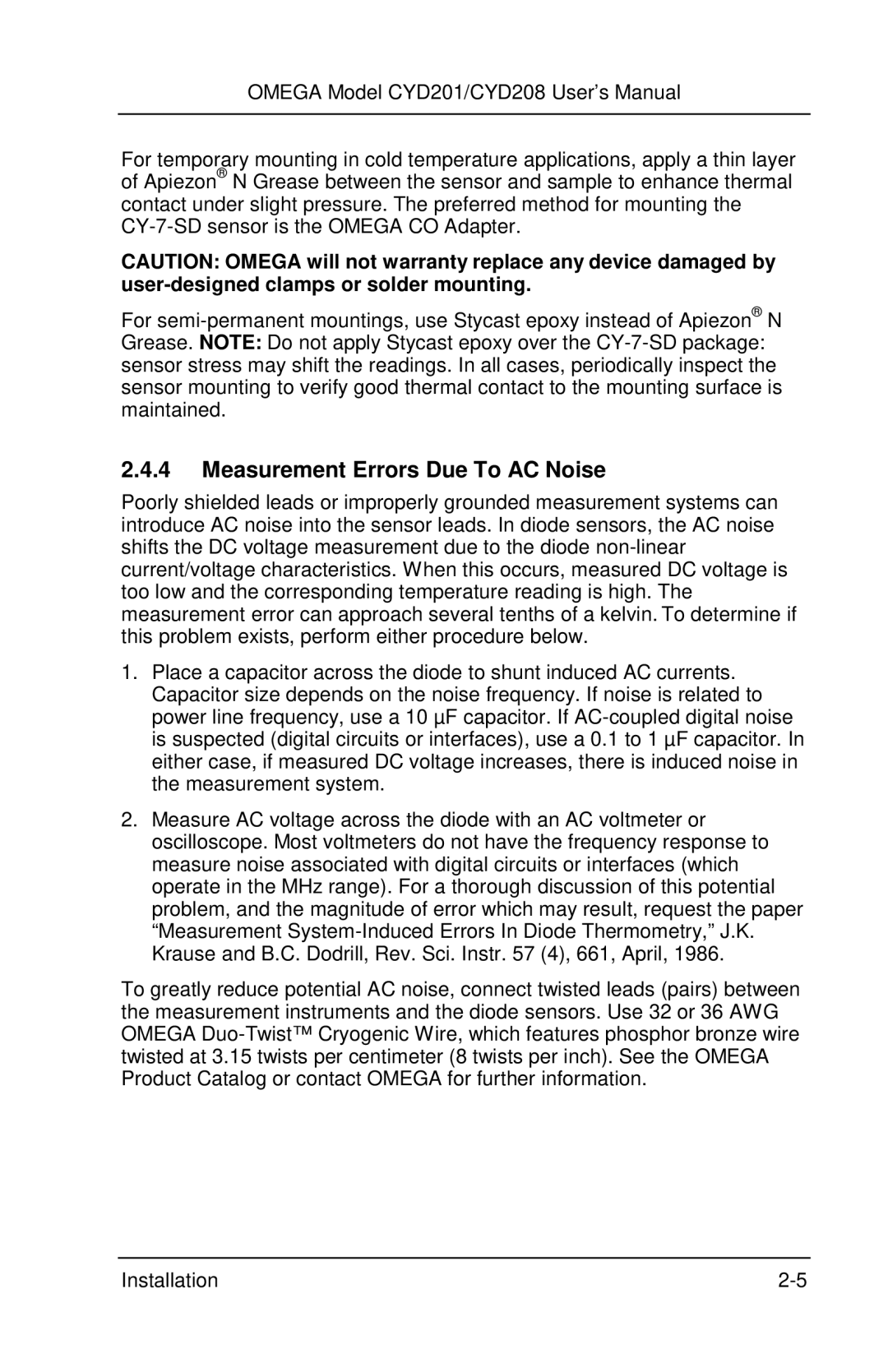
OMEGA Model CYD201/CYD208 User’s Manual
For temporary mounting in cold temperature applications, apply a thin layer of Apiezon® N Grease between the sensor and sample to enhance thermal contact under slight pressure. The preferred method for mounting the
CAUTION: OMEGA will not warranty replace any device damaged by
For
2.4.4Measurement Errors Due To AC Noise
Poorly shielded leads or improperly grounded measurement systems can introduce AC noise into the sensor leads. In diode sensors, the AC noise shifts the DC voltage measurement due to the diode
1.Place a capacitor across the diode to shunt induced AC currents. Capacitor size depends on the noise frequency. If noise is related to power line frequency, use a 10 µF capacitor. If
2.Measure AC voltage across the diode with an AC voltmeter or oscilloscope. Most voltmeters do not have the frequency response to measure noise associated with digital circuits or interfaces (which operate in the MHz range). For a thorough discussion of this potential problem, and the magnitude of error which may result, request the paper “Measurement
To greatly reduce potential AC noise, connect twisted leads (pairs) between the measurement instruments and the diode sensors. Use 32 or 36 AWG OMEGA
Installation |
